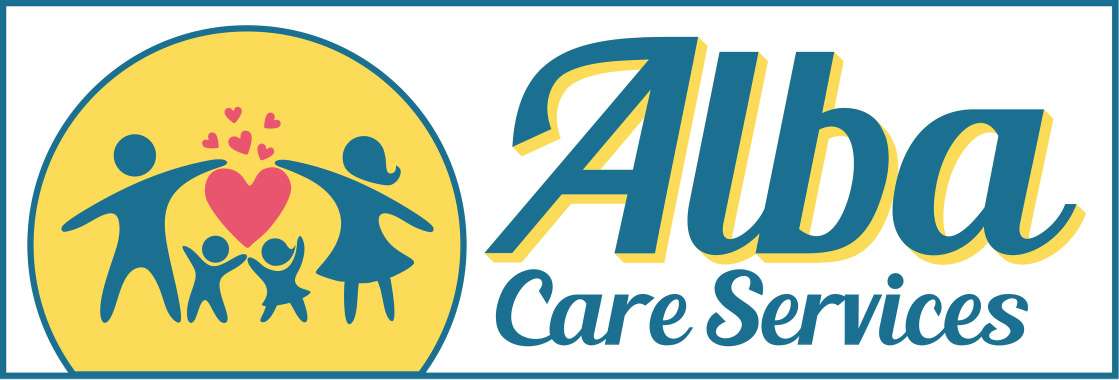Are you considering adopting a child in California? Embarking on the journey of adoption can be both exciting and overwhelming. Knowing the ins and outs of the adoption process is essential to ensure a smooth experience for both the adoptive family and the child. This comprehensive guide on how to adopt a child California will provide you with valuable information on the types of adoption available in the state, the procedures involved, and the resources at your disposal, helping you make an informed decision and embark on this life-changing journey.
Throughout this guide, you’ll gain a deeper understanding of the various adoption options, learn how to choose the right adoption agency, navigate the legal aspects of adoption, and explore the financial considerations. You’ll also discover the support and resources available to adoptive families, ensuring a successful and fulfilling adoption experience for all.
Understanding California Adoption Options
Adopting a child in California offers several options, each with its own unique set of requirements and procedures. Grasping these options is key to choosing the one that aligns best with your family’s needs and aspirations. The four primary adoption options in California are:
- Domestic infant adoption
- Foster care adoption
- International adoption
- Step-parent adoption
Getting acquainted with these choices will enable you to make an informed decision and pursue the path that resonates with you and your family. Each option has its advantages and challenges, and understanding the differences between them will help you navigate the adoption process more smoothly and confidently.
Domestic Infant Adoption
Domestic infant adoption involves birth mothers selecting adoptive parents who must complete a rigorous screening process, address emotional elements, and invest in welcoming an adopted child into their family. Prospective adoptive parents undergo background checks, home studies, and training to ensure they are suitable for adoption through a delegated county adoption agency or an independent adoption process.
Adopting a special needs child or a child part of the California public child welfare agency can qualify for financial benefits, such as tax credits. This is one of the advantages of domestic infant adoption. In this type of adoption, the birth mother plays a crucial role, as she selects the adoptive parents for her child and collaborates with them to develop an adoption plan that benefits all parties involved.
The emotional journey of domestic infant adoption can be intricate, as it evokes a spectrum of emotions, from exhilaration to grief and loss, for everyone involved. Both birth and adoptive parents greatly benefit from consistent support throughout the adoption process.
Foster Care Adoption
Foster care adoption is a cost-free process to adopt in California that involves placing a child in a foster home while awaiting a permanent family. Prospective adoptive parents must meet certain criteria prior to adoption. This involves undergoing a rigorous screening process that includes background checks, home studies and receiving training to become foster parents.
No fee is charged to families for adopting a child or siblings from foster care. This is normally the case and no amount is to be paid. However, certain licensed public adoption agencies may require a fee of no more than $500, which may be deferred, reduced, or waived under certain conditions. Adopting a child can sometimes be expensive. However, there are many adoption agencies that don’t require applicants to pay the fee..
Foster care adoption offers the opportunity for a hopeful adoptive parent to adopt a child in need and can be a rewarding and fulfilling option for both the child and the adoptive family.
International Adoption
International adoption in California is a complex and costly process that involves adopting a child from a foreign nation. This type of adoption is done through private agencies or attorneys and requires a rigorous screening process to ensure the prospective adoptive parents are suitable for adopting a child from another country.
Foreign adoption decrees issued in accordance with the laws of the United States and the nation agreeing to the adoption will be honored by California. This is only valid if the adoption was finalized in a country which is part of the Hague Convention. To navigate the complexities of international adoption, it is essential to work with a private adoption agency licensed to provide these services in the county of your residence.
International adoption can be a rewarding experience for both the child and the adoptive family, offering a unique opportunity to build a family across borders and cultures.
Step-parent Adoption
Step-parent adoption in California requires:
- Consent from the biological parent
- A comparatively straightforward process
- In many cases, no home study is required, unless mandated by the court
- The consent of the biological parent is essential for step-parent adoption.
If the birth parent does not give their consent to step-parent adoption, the adoption cannot be completed. Step-parent adoption offers an opportunity to strengthen family bonds and provide a stable, loving home for the child. It can be a positive and enriching experience for both the child and the adoptive step-parent, creating a strong and supportive family unit.
Choosing the Right Adoption Agency
Choosing an appropriate adoption agency is pivotal to a successful adoption journey. The agency plays a significant role in the adoption journey and can greatly influence the outcome. Consideration of factors such as:
- cost
- support
- wait times
- financial protection
It is imperative when scanning potential adoption agencies for those interested in adopting to consider agency adoption processes.
In order to identify the agency that best aligns with your family’s needs, thorough research on potential agencies is recommended. This may include talking with representatives, comparing fees, and consulting references. Taking the time to thoroughly evaluate potential adoption agencies will help ensure a smooth and successful adoption process.
Agency Evaluation
An assessment of the agency’s reputation, success rates, and the support services it provides is critical while evaluating adoption agencies. To ascertain the success rates of adoption agencies, contact the agency directly and request their success rates. Additionally, research online for reviews and testimonials from families who have adopted through the agency.
Check for accreditation from reputable organizations such as the Council on Accreditation (COA) or the National Council For Adoption (NCFA). Furthermore, local adoption support groups and organizations in California can be contacted for recommendations and feedback. Seeking advice from adoption attorneys, social workers, or other professionals who specialize in adoption is also recommended.
Collecting information from a variety of sources is paramount to making an informed decision since each agency might have distinct strengths and specialties. Therefore, consider your specific needs and preferences when evaluating the reputation of adoption agencies.
Orientation and Training
Participating in the adoption agency’s orientation and training sessions is a vital step in the adoption journey. These sessions offer valuable information on:
- The requirements and qualifications for adoption
- The various types of adoption
- The role of the adoption agency
- The steps involved in the adoption process
To prepare for adoption agency orientation and training, follow these steps:
- Attend the informational session provided by the agency.
- Complete any required pre-approval training.
- Gain familiarity with the process of open adoption and the services offered by the agency.
These sessions provide an opportunity to ask questions and address any concerns, helping you feel more confident and informed as you embark on your adoption journey.
Navigating the Legal Aspects of Adoption
Although the legal facets of adoption in California can be intricate, understanding them is indispensable for a successful and legally sound adoption procedure. Key legal aspects include the home study, post-placement assessment, and finalizing the adoption. Understanding these aspects and their requirements will help you navigate the adoption process smoothly and confidently.
Fulfilling all legal prerequisites and prioritizing the child’s best interests will set the stage for a successful adoption and a lifetime of affection and support for your adopted child.
Home Study
The home study is a critical step in the adoption process, as it assesses the suitability of the prospective adoptive family’s home and lifestyle. This evaluation is conducted by a licensed social worker or agency and is mandatory for all prospective adoptive parents in California.
Completing a home study involves meeting certain qualifications, such as being at least 10 years older than the child you intend to adopt, although exceptions may be made if the adoptive parent is a relative of the child. The home study helps ensure that the adoptive family can provide a safe, secure, and loving environment for the child and is an essential step in the adoption process.
Post-Placement Assessment
Following the placement of the child in the adoptive home, a post-placement assessment is required. This assessment evaluates the child’s integration into the adoptive family’s home prior to the finalization of the adoption and involves follow-up visits and assessments by a social worker.
The post-placement assessment typically takes place over a period of approximately six months and is an essential step in ensuring the child’s well-being and adjustment in the new family. By completing this assessment, you demonstrate your commitment to providing a nurturing and supportive home for your adopted child.
Finalizing the Adoption
Finalizing the adoption legally is the last step in the adoption process. To finalize the adoption in California, you must:
- Meet all legal requirements
- File a petition with the court clerk
- Complete a home study
- Obtain the termination of parental rights
- Attend a finalization hearing.
If the adoption is not finalized, the legal responsibility for the child remains with the birth parents, who must then either resume care of the child or make alternative arrangements. By ensuring that all legal requirements are met and the child’s best interests are considered, you can confidently and securely welcome your adopted child into your family.
Embracing Open vs. Closed Adoptions
Whether you choose an open or closed adoption depends on the level of involvement desired by the birth parents. Open adoption allows for contact between the biological and adoptive parents, with adoptive parents setting contact limits. Closed adoption, the default in California, involves no contact or identity sharing between birth and adoptive parents.
Comprehending the distinctions between open and closed adoptions facilitates a well-informed decision that caters to your family’s needs and the child you aim to adopt. Both options have their advantages and challenges, and embracing the one that aligns with your preferences and values will contribute to a successful adoption experience.
Open Adoption
In an open adoption:
- Contact between biological parents and adoptive parents is allowed
- Adoptive parents can set contact limits to establish boundaries and agreements with the birth parents
- Open communication benefits all parties in the adoptive triad
- It can provide a sense of connection and understanding for the child as they grow up
However, open adoption can also present challenges, such as boundary issues, unrealistic expectations, and conflicting values. By carefully considering these factors and maintaining open communication, you can create a positive and supportive environment for all parties involved in an open adoption.
Closed Adoption
Closed adoption in California offers privacy for both the birth parents and the adoptive parents, as there is no contact or communication between the two parties. The adoption agency plays a crucial role in closed adoption, facilitating the adoption process and ensuring the legal transfer of parental rights.
While closed adoption can provide a sense of privacy and security, it also has disadvantages, such as a lack of information about the child’s well-being and development.
Weighing the pros and cons of closed adoption will help you make an informed decision that best suits the needs and preferences of your family and the child you plan to adopt.
Financial Considerations
Adoption can encompass a variety of financial factors, encompassing costs, tax credits, and financial aid programs available for qualifying families. Adoptive parents in California may have to handle many expenses associated with the adoption process. This includes birth parents’ expenses such as:
- attorney’s fees
- medical fees
- counseling fees
- living expenses
The Adoption Assistance Program can provide financial assistance and medical coverage for many of today’s waiting foster children, and families adopting a foster child may be eligible to receive a federal tax credit.
Being aware of these financial considerations can help you plan for the adoption process and ensure that you have the necessary resources to provide a loving and supportive home for your adopted child.
Support and Resources for Adoptive Families
The adoption process and the upbringing of an adopted child can be an emotionally intense and challenging journey. Fortunately, there are numerous support and resources available to adoptive families, including legal assistance, counseling, and community resources.
Legal resources such as Advokids, the California Department of Social Services (CDSS), and the Family Law Division can provide guidance and support throughout the adoption process.
Psychological counseling services and support groups can offer emotional support and help adoptive families navigate the unique challenges of raising an adopted child. By accessing these resources and developing a strong support network, you can ensure a smoother adoption process and a nurturing environment for your adopted child.
Frequently Asked Questions
How much does it cost to adopt a child in California?
The cost to adopt a child in California typically ranges between $40,000 and $70,000. However, it’s important to note that each adoption agency may have a different price range.
What are the requirements to adopt a child in California?
In California, you must be at least 10 years older than the child you are adopting, with exceptions for stepparent and relative adoptions. Additionally, all adoptive parents must complete a home study, including criminal background (fingerprint) checks, to be approved to adopt.
Is adoption free in California?
Adoption from foster care in California is usually free; however, licensed public adoption agencies may charge a fee of up to $500.
How difficult is it to adopt a baby in California?
Adopting a baby in California can be difficult, as you need to be at least 10 years older than the child and complete a home study. There are exceptions for stepparent and relative adoptions.
What are the four primary adoption options available in California?
In California, there are four primary adoption options available: domestic infant adoption, foster care adoption, international adoption, and step-parent adoption.







